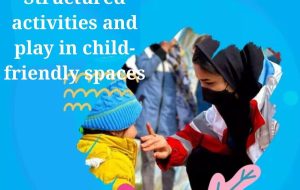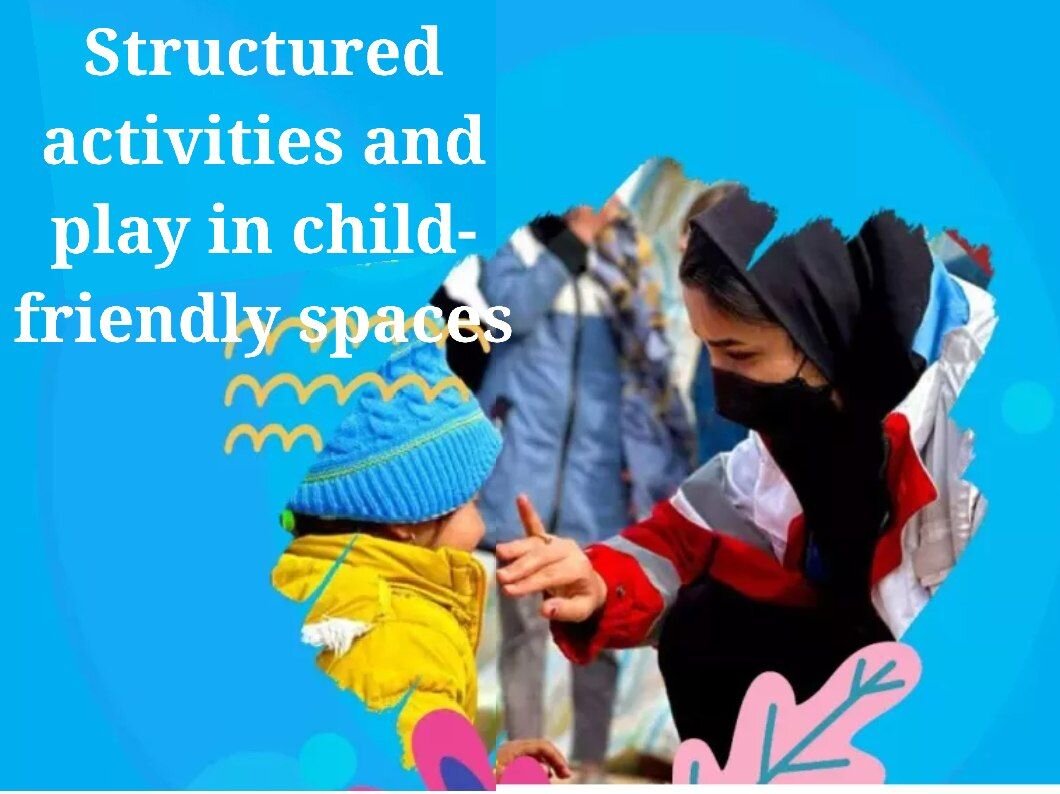UNICEF in Iran publishes book on supporting children in emergencies
TEHRAN – ‘Structured Activities and Play in Child-Friendly Spaces’ is the name of a book published by the United Nations Children’s Funds (UNICEF) and the Iranian Red Crescent Society (IRCS) in Persian to foster psychological support for children during emergencies and crisis. The book introduces a collection of structured activities and various games designed for


TEHRAN – ‘Structured Activities and Play in Child-Friendly Spaces’ is the name of a book published by the United Nations Children’s Funds (UNICEF) and the Iranian Red Crescent Society (IRCS) in Persian to foster psychological support for children during emergencies and crisis.
The book introduces a collection of structured activities and various games designed for use in child-friendly spaces within crisis and humanitarian settings, the UNICEF website announced in a press release on November 7.
The main objective of these activities is to support the mental and social well-being of children and to create a safe environment for learning and play, which can help reduce the negative impacts of crises and disasters on children’s psychological and social development.
The book provides activities suitable for children aged 6 to 18, serving as a practical tool for facilitators, teachers, social workers, and those interested in working with children in emergency settings. With a scientific and practical approach to play as an essential component of early psychosocial interventions, this collection enables educators and field workers to confidently and effectively provide services for children in child-friendly spaces.
In August, the IRCS in cooperation with UNICEF organized a workshop for the IRCS’ psychosocial support team to enhance their capacity for ‘Ensuring Quality in Psychosocial and Mental Health Care and Support’ (EQUIP) during emergencies.
The workshop was held from August 18 to 20 in Mashhad, Khorasan Razavi province; a total of thirty-five national master trainers of the IRCS’ psychosocial support team, SAHAR, participated in the workshop, UNICEF website announced in a press release on August 28.
The IRCS’ SAHAR teams consist of volunteers trained to provide Mental Health and Psychosocial Support (MHPSS) following disasters.
EQUIP assists SAHAR’s master trainers with planning and conducting training and supervision for the volunteers of the SAHAR teams.
The enhanced skills and capacities will result in more children, adolescents, and their families receiving effective and safe mental health services during emergencies.
UNICEF has provided safe and supportive spaces for Afghan children in the Torbat-e Jam Refugee Settlement in Khorasan Razavi Province to develop skills essential for dealing with life challenges.
UNICEF-supported Child-Friendly Space (CFS) in Iran is one of the three centers made possible by the European Civil Protection and Humanitarian Aid Operations’ financial aid.
CSFs provide children the chance to play and grow, the UNICEF website announced in a press release on April 30.
Play is not just a pastime for children; it is a fundamental part of their development. Through play, children and grow intellectually, socially, emotionally, and physically. In the course of play, children build relationships and learn leadership skills, resilience, social navigation, and fear management.
Play provides comfort and safety, helping children make sense of the world around them. It is also a platform for children to express and nurture their imagination and creativity. UNICEF Iran reached 5,354 vulnerable children, including Afghan refugees.
This is especially important for refugee children, who need a safe place to explore and develop life skills. These spaces also provide support in managing the anxiety and trauma that come with the displacement of children from their home countries.
Those enrolled in the Child-Friendly Space engaged in very various activities. In addition to playing with their peers, they learn poems, how to greet and converse with others, and basic hygiene practices like brushing their teeth.
Zahra Mostafaee, a local NGO staff member working with the children in Torbat-e Jam, has said, “In Torbat-e Jam settlement, 870 youngsters aged 3 to 12 are enrolled in this program.
Here, they receive crucial life-skill training and psychological support. Initially, the parents were uncertain about the space. However, when they came here, brought their children with them, and saw the activities, they became quite welcoming and enthusiastic.”
MT/MG
